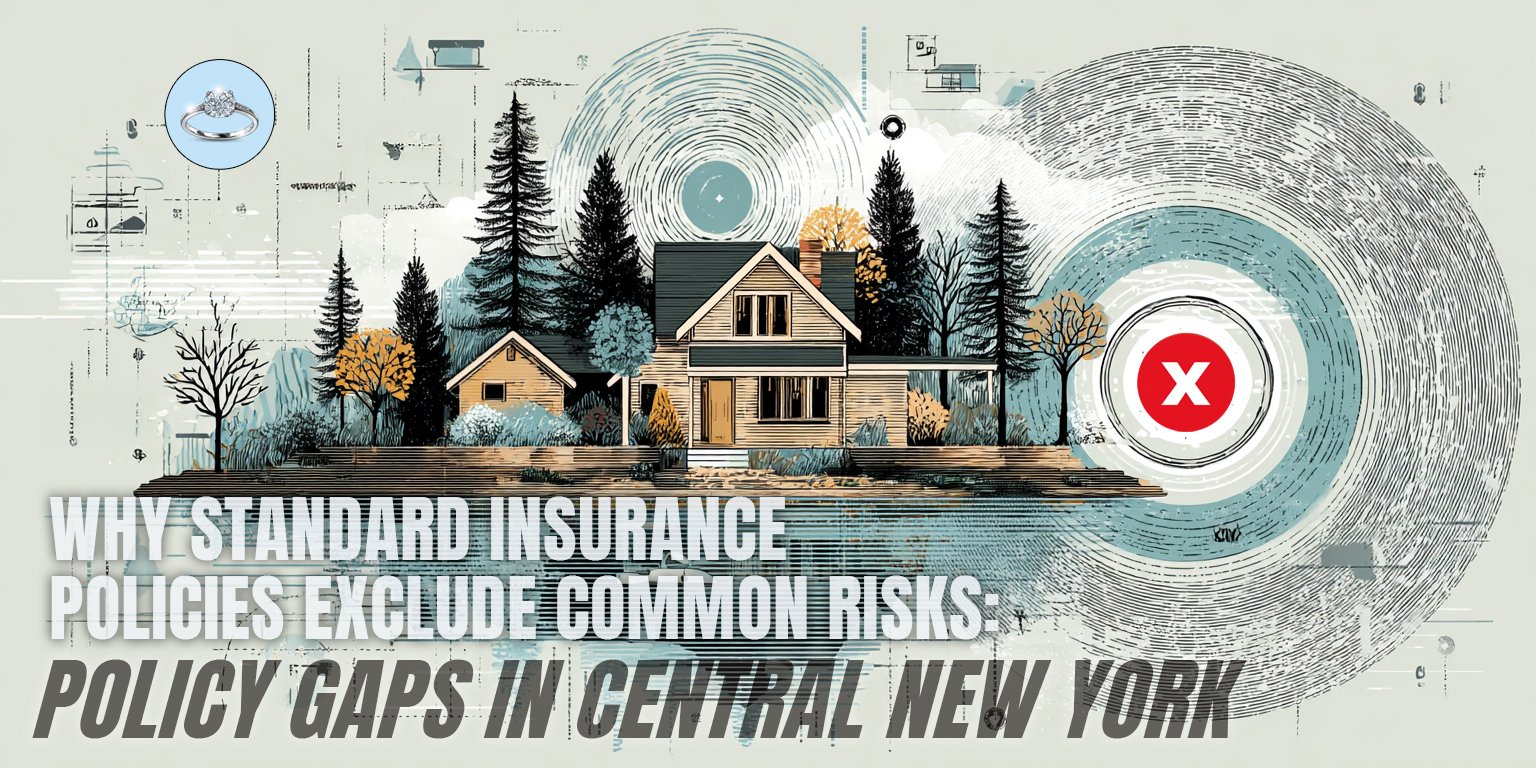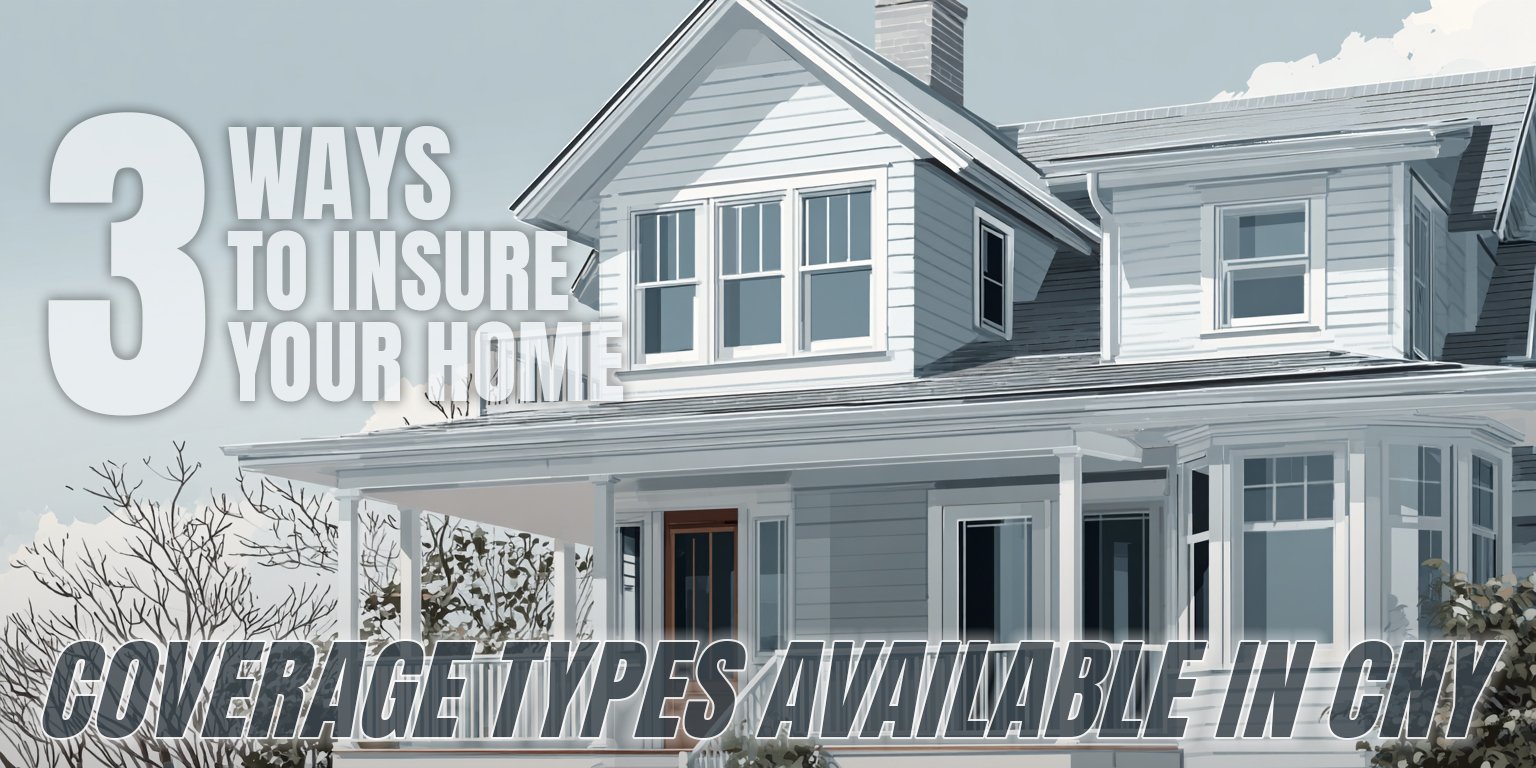Will My Rates Go Up if I File a Claim?
September 4th, 2024
5 min read

When you file an insurance claim, one of the first questions that likely crosses your mind is, “Will my rates go up?”
At the Horan insurance agency, we understand this concern. Many Central New York residents worry about the financial consequences of using their insurance, especially after seeing commercials about “accident forgiveness” or “first claim forgiveness.”
But there's more to the story than what these ads tell you. Let's pull back the curtain on how claims really affect your insurance rates.
The Truth About Rate Increases After a Claim
Contrary to what some insurance companies advertise, your rates are likely to increase after filing a claim, even with “forgiveness” programs. Here's why:
The Claims-Free Discount: A Hidden Factor
Many insurers offer a claims-free discount, which you might be enjoying without realizing it. When you file a claim:
- This discount is typically removed.
- As a result, you end up paying more, even though the base rate hasn't changed.
- The impact can be significant, often around 14% or more of your total premium.
This approach allows insurance companies to technically claim they haven't “raised your rates” while you still end up paying more. It's a subtle but important distinction that affects your wallet just the same.
Timing of Rate Changes
Rate changes don't happen immediately after a claim:
- Your policy rate is set for the term (6 months or a year).
- Changes typically occur at renewal.
- Renewals are processed in advance:
- Auto policies: about 30 days before renewal
- Home policies: around 60 days prior
- Some business policies: up to 100 days in advance
This means you might not see the impact of a claim for quite some time, but it will eventually affect your premium.
Multiple Claims: When Costs Escalate
While your first claim might be “forgiven,” subsequent claims often lead to more significant rate increases:
- You've already lost your claims-free discount from the first incident.
- A second claim within a short period typically results in a direct rate increase or surcharge.
- These increases compound, potentially leading to substantial premium hikes.
The Five-Year Look-Back: What Insurers Really Care About
Insurance companies typically focus on the last five years of your history. Even if you've had a clean record for decades, recent claims matter most. They consider:
- Your claims history in the past five years
- The frequency and severity of recent claims
- Any changes in your driving record or risk factors within this period
“Isn't This What Insurance Is For? To Cover Claims?”
We often hear this question in our Central New York offices, and it's a valid one. You've been diligently paying your premiums, so why should your rates go up when you need to use the service you've been paying for?
Yes, insurance is indeed designed to cover your losses. However, it's important to understand how insurers view risk and price their policies:
- Your initial rate was based on your claim-free history and perceived lower risk.
- After a claim, you're seen as a potentially riskier client to insure.
- Your new rate reflects this updated risk assessment.
Think of it this way: if you'd had this claim on your record when you first applied for insurance, your initial rate would have been higher. Insurance companies are constantly reassessing risk, and unfortunately, a claim changes your risk profile in their eyes.
This doesn't mean you shouldn't use your insurance when you need it. That's precisely what it's for. However, understanding this dynamic can help you make more informed decisions about when to file a claim and how to manage your insurance costs in the long run.
Making Informed Decisions About Filing Claims
Understanding these realities can help you make better decisions about when to file a claim. Here are key factors to consider:
 1. The Severity of the Damage Versus Your Deductible
1. The Severity of the Damage Versus Your Deductible
Before filing a claim, compare the cost of repairs to your deductible:
- Auto Insurance: If your car suffers minor damage from a fender bender on Erie Boulevard and the repair cost is $800 with a $500 deductible, paying the $300 difference yourself could prevent potential premium increases.
- Home Insurance: After a storm in Cicero, if a few shingles blow off your roof causing $1,200 in damage and your deductible is $1,000, the $200 savings might not justify the potential rate increase.
- Business Insurance: For a small retail store in Manlius facing $8,500 in damages from broken windows, with a $1,000 deductible, filing a claim might make sense given the significant difference.
Multiple small claims can impact your rates more than a single large claim, so choose your battles wisely.
2. Your Recent Claims History
Your claims history plays a crucial role in how insurers view your risk:
- Landlord Insurance: If you've been claim-free on your rental property in Baldwinsville for several years, filing a claim for significant damage from a tenant might have less impact on your rates.
- RV Insurance: However, if you've filed claims for collision damage and theft on your RV in the past three years, filing another claim for storm damage while parked at Green Lakes State Park could lead to more substantial rate increases.
- Boat Insurance: For a boat you use on Oneida Lake that's had no claims in five years, filing for damages from a dock collision might not severely impact rates. But multiple claims in a short period could lead to non-renewal or higher premiums.
Consider the nature of your claims. Multiple at-fault incidents are viewed more negatively than a mix of weather-related or unpreventable events.
3. The Potential Long-Term Impact on Your Premiums
Think beyond the immediate claim and consider the long-term financial implications:
- Contractor Insurance: For a contractor in Oswego with a $3,000 annual premium, a single liability claim could affect rates for 3-5 years. If it results in a 30% increase, that's an extra $900 per year or $4,500 over five years.
- Motorcycle Insurance: Filing a claim for $4,000 in collision damage might save you money now, but if it leads to a 25% premium increase on your $800 annual policy, you'll pay an extra $1,000 over five years.
- Seasonal Home Insurance: For a vacation property on Onondaga Lake with a $1,200 annual premium, a 20% increase after a storm damage claim could mean $1,200 in additional premiums over five years.
Some insurers offer accident forgiveness or diminishing deductibles for long-term, claim-free customers across all types of policies. These benefits could be lost after filing a claim, adding to the long-term cost considerations.
By carefully weighing these factors, you can make a more informed decision about whether to file a claim. In some cases, paying out of pocket for minor damages can be a strategic choice to maintain lower long-term insurance costs. However, for significant damages or losses, that's exactly what your insurance is there for.
Don't hesitate to use it when you truly need it.
The Unpredictability of Rate Increases
Know that neither your insurance agent nor the carrier can predict exactly how much your premium will increase after a claim. The impact varies based on numerous factors and is only determined when your renewal is processed.
Use Your Insurance with Confidence
Dealing with insurance claims can be stressful and confusing. You might worry about making the wrong decision or facing unexpected rate hikes. This uncertainty can add anxiety to an already difficult situation.
At the Horan insurance agency, we understand these concerns. While we can't predict exact rate changes, we offer:
- Honest advice rooted in years of experience
- In-depth knowledge of various policies and carriers
- A commitment to finding coverage tailored to your unique needs
Our team has extensive experience with the insurance landscape in Central New York. We're here to help you:
- Understand your current coverage
- Evaluate the potential impact of filing a claim
- Explore options to protect both your property and financial future
Don't let insurance uncertainties add to your stress. Take action to gain clarity and confidence in your coverage:
- Review your current policies and
- List any questions or concerns you have
Let's work together to ensure you have the right coverage at the right price, prepared for whatever challenges Central New York might bring—from harsh winters to unexpected accidents.
Click the Get a Quote button below to connect with our team. With Horan's guidance, you'll have the knowledge and support to make informed decisions, protecting your future and giving you composure about your insurance coverage.
Now find out what happens when you file a claim on a new auto or home policy.
Daniel is an accomplished content creator. He has been working in publishing for almost two decades. Horan Companies hired Daniel as its content manager in November 2022. The agency entrusted its messaging to him. Since then, Daniel has written insurance articles, service pages, PDF guides, and more. All in an effort to educate CNY readers. He's helping them understand the world of insurance so they can make informed decisions.
Topics:




























